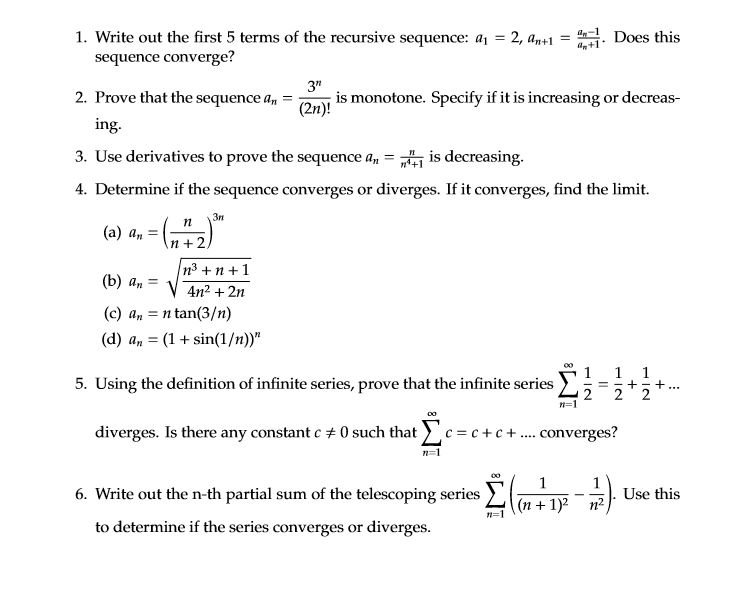

For example, find the recursive formula of 3, 5, 7. An example of a sequence that does not converge is the following: (2.2) (1 1 1 1 :::) If a sequence does not converge, it is said to diverge, which we will explain later in the paper, along with the explanation of why the above sequence does not converge.
#Prove a recursive sequence converges how to#
Learn how to find recursive formulas for arithmetic sequences. Recursive formulas for arithmetic sequences CCSS.Math: HSF.BF.A.2, HSF.LE.A.2 Google Classroom Learn how to find recursive formulas for arithmetic sequences. n 10 j<, proving that n converges to zero by the de nition of convergence. It's just not guaranteed and deeper analysis is required.Īlso, just because $x_1$ isnt in the proper intervals doesnt necessarily mean that some other $x_i$ down the line wont be, and when/if that is the case, convergence is once again guaranteed. Recursive formulas for arithmetic sequences. Before giving the formal definition of convergence of a sequence, let us take a look at the behaviour of the sequences.

If your initial term $x_1$ is not in the appropriate range, convergence can still happen. If we can show this, then by the monotonic sequence theorem, this sequence will be convergent. Since $x_1 = \frac32 = 1.5$, we are in the appropriate range for convergence. We suspect that this sequence is both bounded and increasing. But I don't have any idea how I would begin to prove it. based on calculating the first 100 terms in a spreadsheet I think it converges to 1/sqrt (2). There is a theorem that says for any recursion $x_\approx 2.26795\ldots$, is the case we are in. How do you prove that this recursive sequence converges and how would you find the limit a11 a21 an1/ (a (n-2)+a (n-1)) Basically 1 over the sum of the last two.


 0 kommentar(er)
0 kommentar(er)
